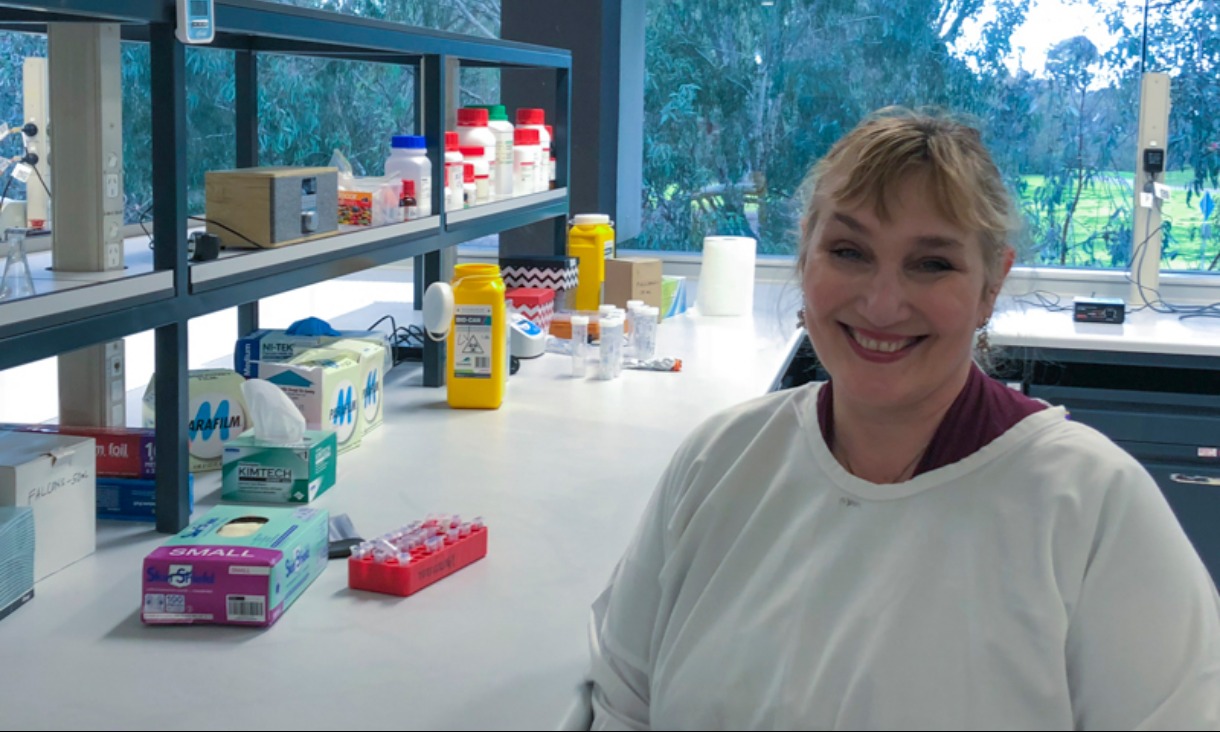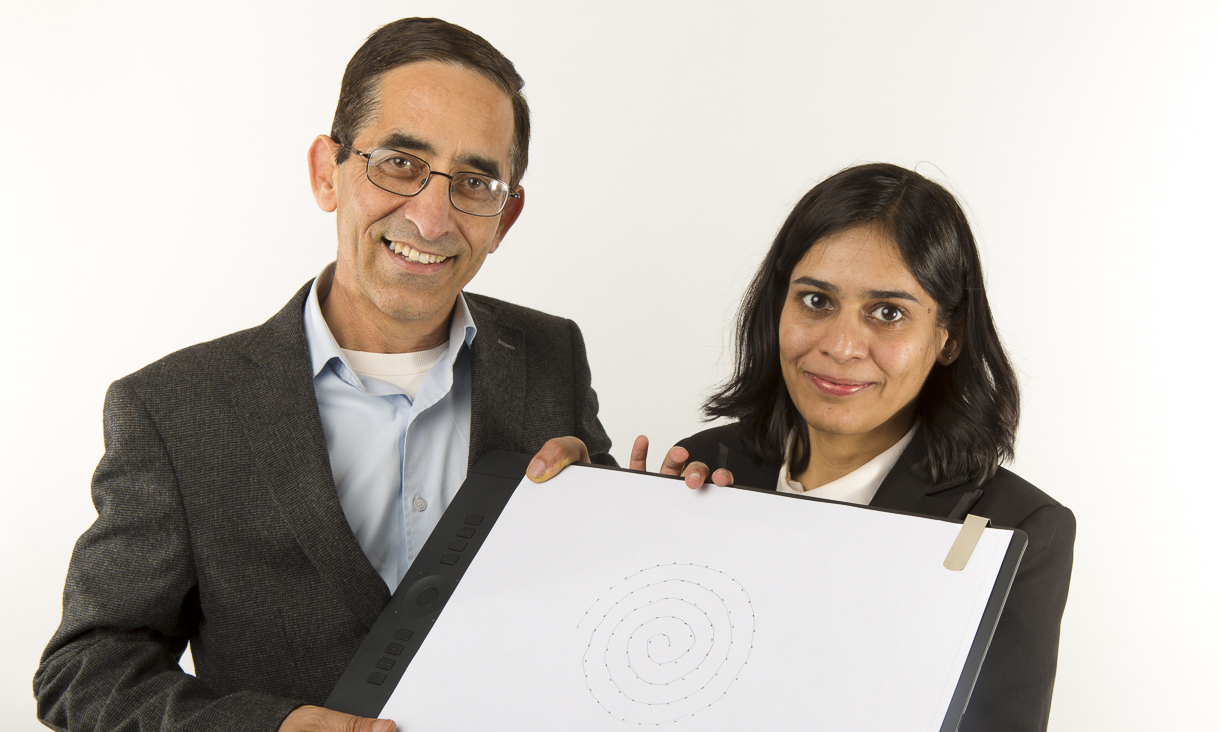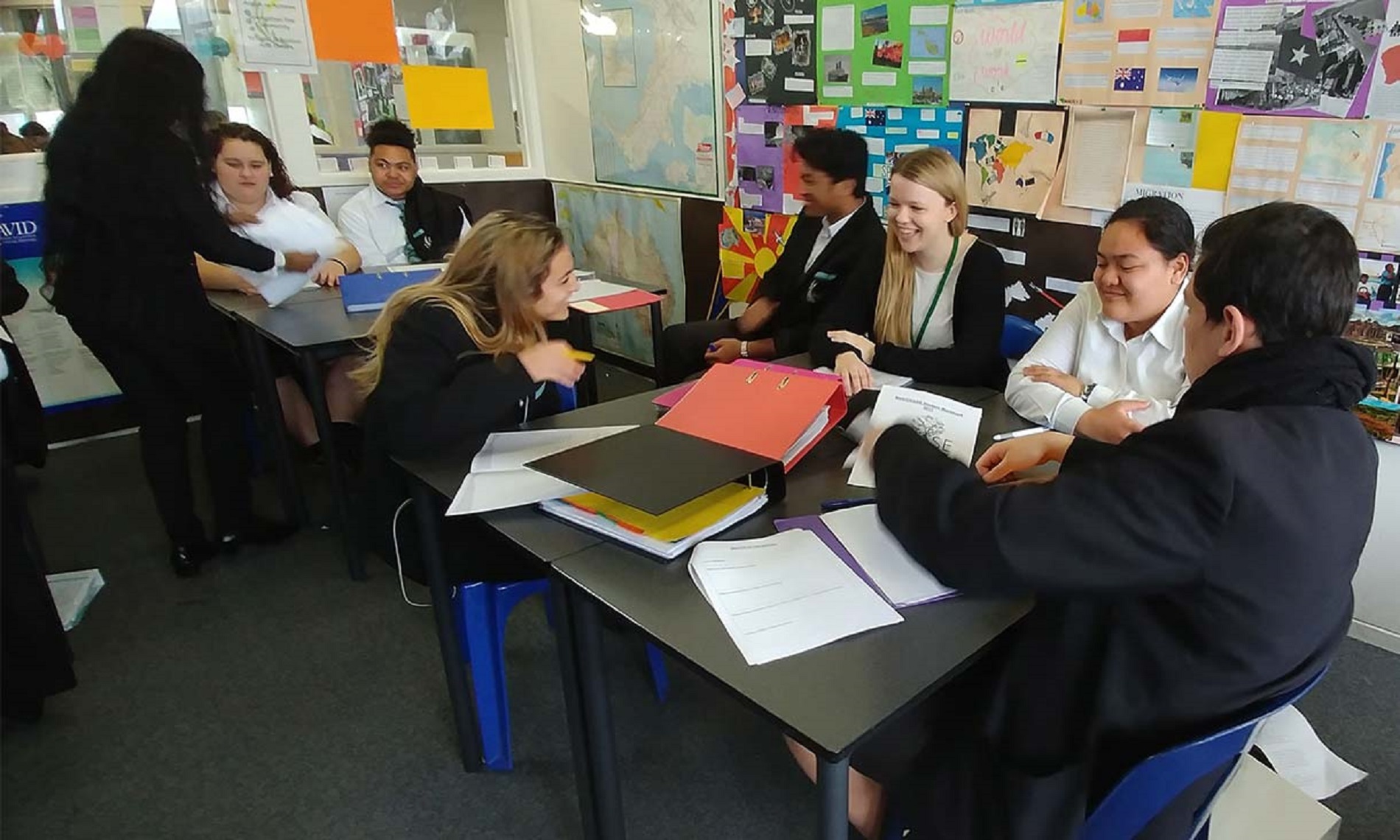“We were going through the wards and saw little kids with brain comas and in twisted positions. It was heartbreaking. At that point I thought, 'Okay, that’s why we are developing a vaccine. It’s not just something theoretical’.”
The internationally-renowned researcher has forged a pioneering career in biomedical and health research. Her life’s work is driven by passion, curiosity and a will to improve people’s lives.
“Early on, I thought I’d be a physicist because I was really interested in mathematics and physics but during my last year of high school in Mexico I fell in love with biochemistry. I applied for an experimental degree that took students from biology, medicine and physics. Only 10 of us were accepted each year because it was handcrafted to engage people who were really excited about doing specific areas of research early.
“That degree didn’t just involve us doing experiments, they were experimenting on us! It was set up by researchers in Mexico, with the aim of teaching individuals to be researchers from the very beginning. It was fantastic because you could pursue your passion early on. I know that RMIT is doing that now with micro credentials but in those days it was very rare.
“I was fascinated by the issue of memory and how the immune system remembers at the cellular level. There was one group in the world that was characterising naïve T cells, based in Bristol. If you are studying immunology, those cells are critical to understand because they help other cells decide what to do in the immune system.
“T cells are a bit like a meddling busy body, directing the immune response. I wanted to know how they remember. So I wrote to the group in Bristol saying, ‘I’m very excited about what you are doing. Can I come to do my PhD and I’ll get my own scholarship?’
“I turned up in Bristol with my two giant suitcases and a scholarship in my back pocket. The researcher told me on the first day he was moving to Philadelphia and asked if I could move my scholarship to follow him. I decided to stay and asked, ‘Can you teach me all your techniques in the month before you go?’. So I learned all those, stayed on and that’s where I completed my PhD.
“I started looking at the area of autoimmunity, how the body starts attacking itself and getting confused. I got a job at Oxford University with a group looking at autoimmunity. But it turns out I was far more interested in the research of my flat mate! Whenever she said something about her malaria research I said, ‘Oh tell me more!’.
“My flatmate told me about how many children die from malaria and showed me photos of her research trips to Africa. I thought ‘My goodness, I bet you T cells are important here’. So, when a more senior position came up in the malaria lab at Oxford, I moved into the field of infectious diseases and malaria.
“At Oxford, my love of translational research really started. It’s also about having inspiring leaders, who’ll drive that kind of work. Adrian Hill, who is a vaccinologist and now the Director of the Jenner Institute at the University of Oxford, was great. He is very passionate and created an environment where we said, ‘let’s make a vaccine and let’s make it work better’.
“When I’d developed a new vaccine nanotechnology after arriving in Australia, I took the IP and set up my own company. I wanted to partner with large scale charitable organisations and I ended up connecting with an international cancer charity, who were tremendous.
“You have to be flexible if you’re running your own biotech company. You have to accept risk, you have to accept failure and you have to learn every time. My advice is: don’t give up and be open to other things if it doesn’t work out with one partner. As long as you are confident that your findings are robust, reproducible, useful, and you’ve done the due diligence, stick with it.
“Academia and industry can mix, and should mix. It costs a lot of money for a vaccine to be applied and make something useful. If you’re serious about wanting whatever you discover to be useful, you have to start thinking when and how you will hand your baby over. Because you will have to hand it over at some point.
“My philosophy is: every person can teach you something. No matter if they are in a completely different area, or if they’re someone you bump into in the coffee shop. If you keep that attitude, you are always learning.
“The future of biomedical science in Australia is bright. I can’t even imagine where we’ll be in 10 or 15 years, that’s how exciting it is! We are really getting onto that exponential growth. I think we’ll see a lot more cross disciplinary work. If you have a big problem, you need to engage a big research team with expertise across many fields to tackle it.
“It’s crucial to reach out beyond academia to guide research priorities. This is one reason I am so excited about my role at RMIT. We are engaging from the top down, looking at what industry and the community need first.
“I think bionics will happen in our lifetime, advances in AI are real, we have 3D printing. There are so many advances but it’s about how we use them. We need to use them in a wise and compassionate way. We must start ethical debates and share our knowledge and findings early with the people who are on the receiving end of this new technology."
Professor Magdalena Plebanski is Director of the Biomedical and Health Innovation Enabling Capability Platform and leads the Translational Immunology and Nanotechnology Laboratory in the School of Health and Biomedical Sciences at RMIT. She was recently awarded a prestigious Senior Research Fellowship by the National Health and Medical Research Council (NHMRC), supporting her work on innovative immune-based therapies and diagnostics, and using nanotechnology to deliver personalised medicine.
Story: Kate Milkins and Gosia Kaszubska




.jpg)
